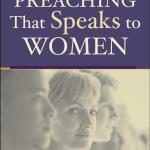There is a first rate article on the nature of marriage from a legal point of view on the CNN website. Here is the link—http://www.cnn.com/2013/03/20/opinion/george-gay-marriage/index.html?iref=allsearch
The article is written by three persons legally competent to analyze the legal pros and cons of legalizing gay marriage. Here is how the article begins…..
Editor’s note: Robert P. George is a visiting professor at Harvard Law School and McCormick professor of jurisprudence at Princeton University. Sherif Girgis, a recent Rhodes Scholar, is a philosophy Ph.D. candidate at Princeton and a J.D. candidate at Yale Law School. Ryan T. Anderson is William E. Simon Fellow at the Heritage Foundation. They are authors of a new book, “What Is Marriage? Man and Woman: A Defense.”
(CNN) — “The attractive civil rights rhetoric of “marriage equality” masks a profound error about what marriage is.
Of course, if marriage were simply about recognizing bonds of affection or romance, then two men or two women could form a marriage just as a man and woman can. But so could three or more in the increasingly common phenomenon of group (“polyamorous”) partnerships. In that case, to recognize opposite-sex unions but not same-sex or polyamorous ones would be unfair — a denial of equality.
But marriage is far more than your emotional bond with “your Number One person,” to quote same-sex marriage proponent John Corvino. Just as the act that makes marital love also makes new life, so marriage itself is a multilevel — bodily as well as emotional — union that would be fulfilled by procreation and family life. That is what justifies its distinctive norms — monogamy, exclusivity, permanence — and the concept of marital consummation by conjugal intercourse.”
They go on to argue….
“All human beings are equal in dignity and should be equal before the law. But equality only forbids arbitrary distinctions. And there is nothing arbitrary about maximizing the chances that children will know the love of their biological parents in a committed and exclusive bond. A strong marriage culture serves children, families and society by encouraging the ideal of giving kids both a mom and a dad.
Indeed, if that is not the public purpose of marriage law, then the “injustice” and “bigotry” charges comes back to bite most same-sex marriage supporters.
If marriage is just the emotional bond “that matters most” to you — in the revealing words of the circuit judge who struck down California Proposition 8 — then personal tastes or a couple’s subjective preferences aside, there is no reason of principle for marriage to be pledged to permanence. Or sexually exclusive rather than “open.” Or limited to two spouses. Or oriented to family life and shaped by its demands.
In that case, every argument for recognizing two men’s bond as marital –equality, destigmatization, extending economic benefits — would also apply to recognizing romantic triads (“throuples,” as they are now known). Refusing such recognition would be unfair — a violation of equality — if commitment based on emotional companionship is what makes a marriage.”
There is much more to their argument which you can peruse by going to the link listed at the top of this post.
I would just add several considerations from a Christian theological point of view. These points have to do with the definition of marriage, not the issue of civil unions sanctioned by state laws. I do not oppose the latter. What I oppose completely is the forced redefinition of the meaning of the word marriage, which up until recently referred to heterosexual monogamy in America law and society. This is precisely why there are anti-polygamy, anti-incest, anti-beastiality etc.laws on the books.
Here are my theological points: 1) Mt. 19 makes clear enough that Jesus only supports one definition of marriage— a case where ‘God has joined together one man and one woman, who can thereby share a one flesh union as man and wife, with the possibility of producing progeny; 2) the only alternative to this is said to be ‘being a eunuch for the sake of the kingdom’. Among other things this required in antiquity that: 1) the person who was a eunuch not marry, and 2) that the person remain chaste. In other words, Jesus’ view, which was also the view of Paul was that fidelity in heterosexual monogamy and celibacy in singleness were the only legitimate options for Jesus’ disciples.
Secondly, there is the matter that gender matters. It matters not only for the propagation of the human species, which requires both male and female, or the by products of male and female (sperm and egg). To suggest gender is irrelevant to marriage is illogical. This is like arguing that having two fathers or having two mothers is the same thing as having a father and a mother. Either gender matters, or it does not. Either gender makes a difference in human life and relationships, or it does not.
If gender does matter, then there is no logic to the argument that a child can do just as well with two moms or two dads, as with a mother and a father. No they cannot not. Every child, if humanly possible needs a father and a mother. Mothers cannot entirely assume all the roles of fathers, and fathers cannot entirely assume all the roles of mothers. There is always a deficiency, always something left out.
The Bible tells us in the creation story that what completed the man, was a woman. This was his cure for being ‘alone’, and nothing else would do. Only a woman could be ‘bone of my bone, and flesh of my flesh’ in the case of the man. Indeed, some scholars have suggested that the whole point of Adam working through the lower animals and naming them was he was ruling out possible mates….until that is he came to Eve. The only ‘suitable companion’ as the Hebrew puts it.
There is a further theological problem with redefining marriage to include gay marriage. According to the Bible, God created us male and female in the divine image. There is something about this duality that is important when it comes to reflecting the divine image. It requires both men and women to reflect that image fully. And of course the account in Genesis says we were ‘made’ that way– male and female, an intentional and purposeful duality.
‘Marriage’ relationships that do not involve this duality do not adequately reflect the gamut of God’s image on earth. They reflect something else, something deficient. From a Biblical point of view only males can be husbands and fathers, and only females can be wives and mothers. And every child needs both such parents if it is possible. Of course they need both parents to be functional not dysfunctional, good parents not bad parents, and this also requires that the parents continue to love each other. Hence the warnings against divorce and remarriage, with Jesus even ratcheting up the rhetoric so far as to call some forms of remarriage an act of committing adultery! (see Mark 10).
For all these reasons and other good ones, I am not in favor of redefining the meaning of the word marriage, while I also do not oppose civil unions, because that does indeed touch on the issue of secular civil rights. No one should have an inalienable right to redefine the long time honored definition of marriage. And in my view, no Christian minister who knows his Biblical theology and ethics at all well and wants to stick to God’s Word on this subject, should be advocating or solemnizing non-marriages as if they were God-blessed marriages.
And that of course is what is happening in various States at this juncture. But marriage, as Christians understand it is not a RIGHT. It is a blessing, a privilege, a gift of God, but not a right. And furthermore, as Paul puts it in 1 Cor. 7, only some have the grace gift (charisma) to be married in the Lord, not everyone. Despite a rising tide that disagrees, I am sticking by my guns on this one. God gets to define what Biblical marriage is and isn’t. We do not.

















